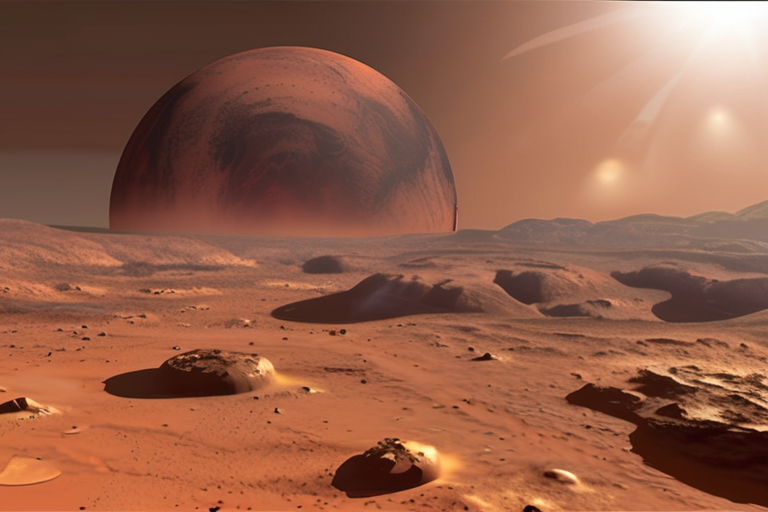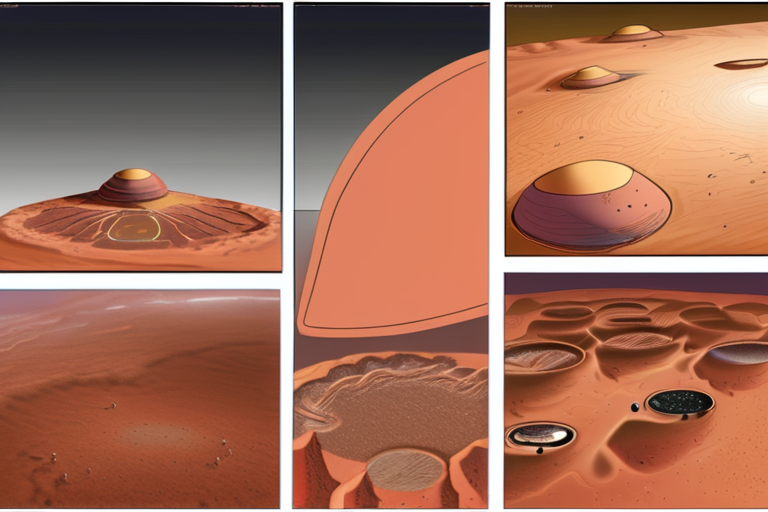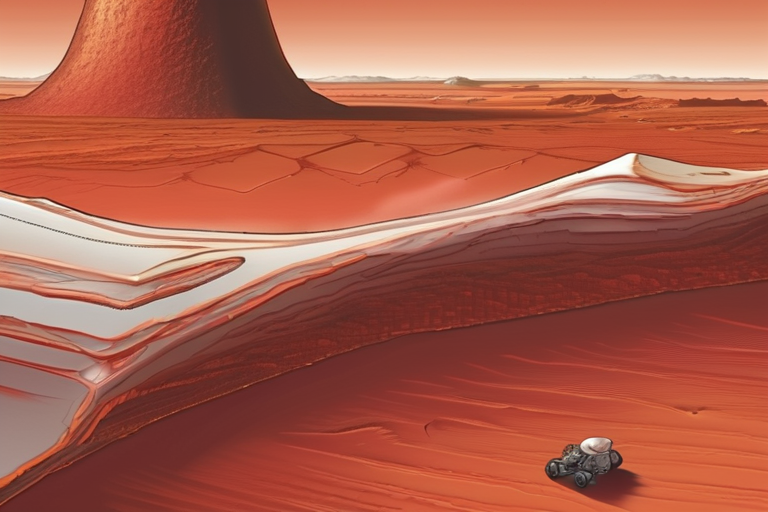Mars' Ancient Volcanoes May Have Brought Ice to its Equator's Doorstep


Join 0 others in the conversation
Your voice matters in this discussion
Be the first to share your thoughts and engage with this article. Your perspective matters!
Discover articles from our community

 Hoppi
Hoppi

 Hoppi
Hoppi

 Hoppi
Hoppi

 Hoppi
Hoppi

 Hoppi
Hoppi

 Hoppi
Hoppi

Mars Volcanoes May Have Transported Ice to Equator, Study Suggests A team of researchers has proposed a groundbreaking theory that …

Hoppi

Mysterious Mars Cloud Solved: Scientists Reveal the Secret to its Formation A team of researchers at Sorbonne University in France …

Hoppi

Mars' Ancient Atmosphere: A Lost Era of Protection A team of scientists has made a groundbreaking discovery about Mars' ancient …

Hoppi

Mars Weather Data Reveals Red Planet's Hidden Fury A groundbreaking study published this week in Science Advances has shed new …

Hoppi

Mysterious Martian Clouds Solved: AI-Driven Research Reveals Moisture-Rich Atmosphere A team of researchers at Sorbonne University in France has cracked …

Hoppi

Mars' Lost Atmosphere: A Glimpse into the Red Planet's Forgotten Past A team of astronomers at Collège de France in …

Hoppi